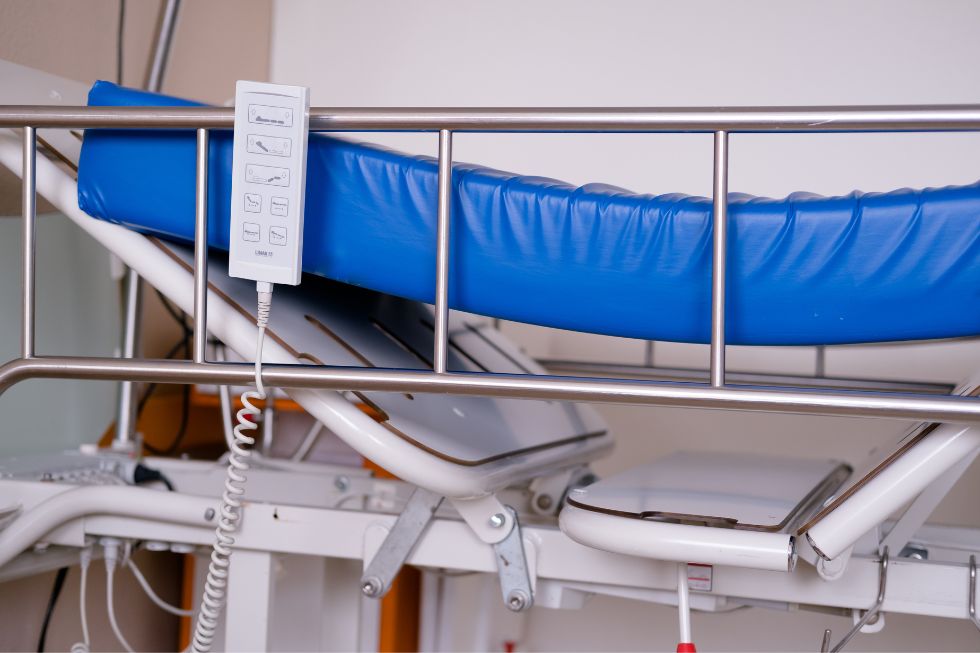Hospital mattresses designed for patient beds and stretchers play a crucial role in healthcare by ensuring patient comfort, promoting healing, and preventing complications. Their specialized engineering supports the unique needs of patients, from providing pressure relief and enhancing infection control to ensuring stability during emergency transport. Discover how hospital mattresses protect patient health and contribute to the efficacy of healthcare services.
Pressure Relief
A hospital mattress alleviates pressure points by distributing the patient’s weight evenly across the mattress surface. Reducing the concentration of pressure on any single area of the body particularly benefits immobile patients who spend extended periods in bed.
Continuous pressure on an area of the body can lead to the development of bedsores, also called pressure ulcers. They most commonly develop on skin that covers bony areas of the body, such as the tailbone. These sores can range from mild redness or discoloration to severe tissue damage that extends into muscle and bone. By improving patient weight distribution, hospital mattresses minimize the risk of pressure ulcers.
Infection Control
Infections can compromise patient recovery and have far-reaching implications in a healthcare setting. Patients can acquire infections in hospital rooms through several means, including direct contact with bacteria, viruses, or other pathogens present on surfaces or medical equipment.
Hospital mattresses protect patient health by supporting a cleaner, more sanitary environment for patient recovery. Routine disinfection is key in controlling hospital-acquired infections, and hospital cleaning technicians can easily clean and sanitize the antimicrobial covers on hospital mattresses to safeguard patients from infection.
Comfort and Stability
Hospital mattresses enhance patient comfort by providing optimal support and pressure distribution, which promotes better sleep. With adjustable bedframes, hospital mattresses make it easier to support patients in optimal positions for comfort and recovery. Adequate rest is crucial for patients, as it allows the body to heal, boosts the immune system, and improves overall well-being. Targeted repositioning can also facilitate blood flow and assist with breathing, aiding recovery and helping patients feel better.
Hospital mattresses vary in firmness depending on the density and thickness of the foam. Stryker stretcher mattresses provide a firm and stable surface for patients during transport, which is critical for minimizing movement and preventing further injury or discomfort. Moreover, a stable stretcher mattress can provide a reliable surface for the medical care team to conduct examinations or provide treatment.
Hospital mattresses support patients’ physical recovery by preventing bedsores and promoting healthy circulation. They also help improve patients’ quality of sleep, reducing stress and promoting overall wellness. Ultimately, these mattresses play a crucial role in pressure relief, infection control, comfort, and stability.


Recent Comments